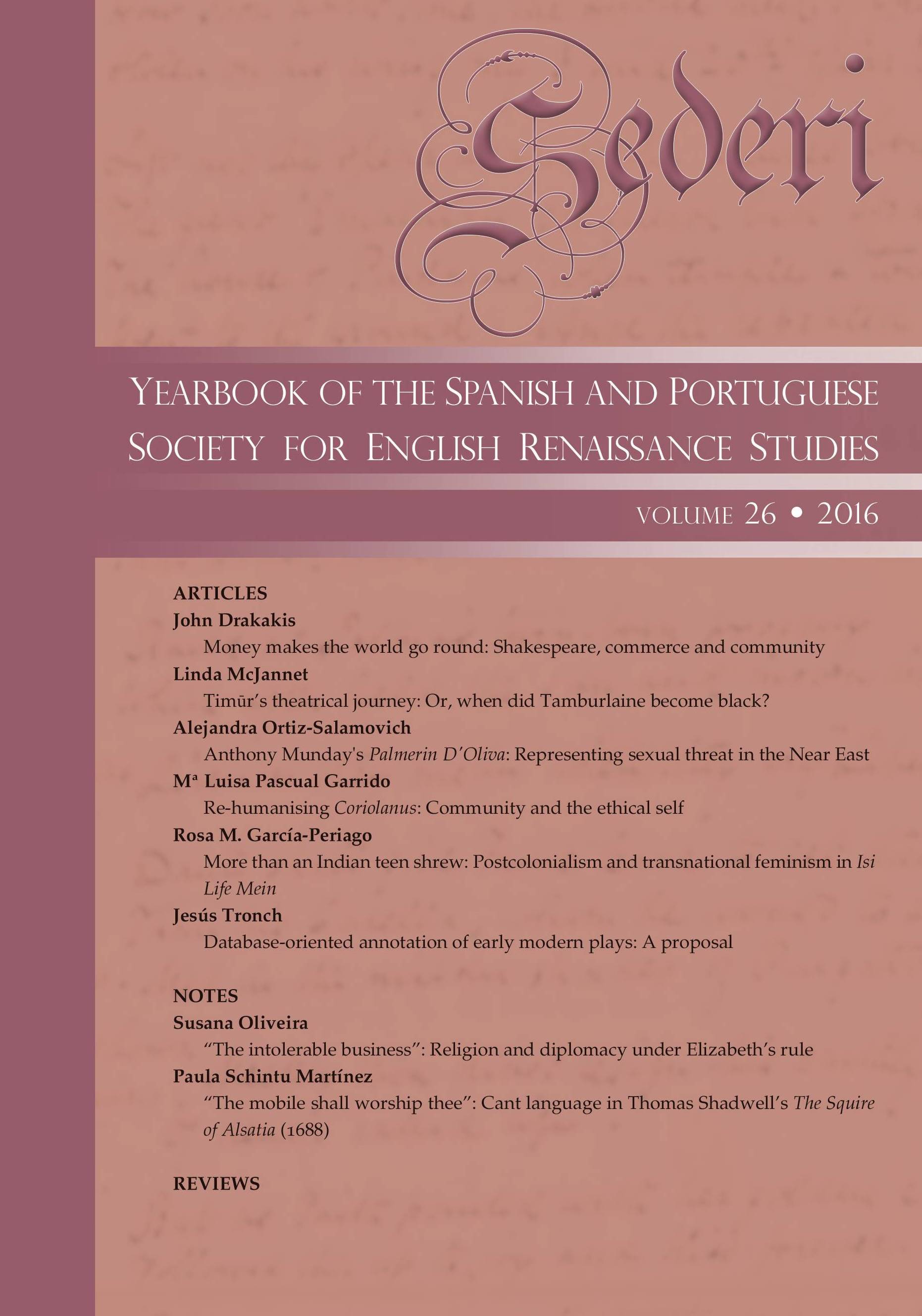"The mobile shall worship thee": Cant language in Thomas Shadwell's The Squire of Alsatia (1688)
Resumo
The dramatic increase in criminality in 16th-century England was behind the emergence of a new type of literary works known as roguish literature which dealt with the life and activities of beggars and lawbreakers. These rogues’ language, cant, became a major concern for many authors, who attached glossaries to their works for the benefit of those who were not familiar with it, marking the beginning of canting lexicography. It is within this framework that Thomas Shadwell (1640-1692) wrote his famous The Squire of Alsatia (1688), which is the focus of this study. This paper explores the use of cant language in this celebrated play from a linguistic and lexicographic point of view, arguing that its profuse employment of canting terminology, much of which is first documented in the play, made a significant contribution to studies in canting lexicography and proved its reliability as a historical portrait of 17th-century English cant.Downloads
Downloads
Edição
Secção
Licença
The copyright holder of the published contributions is SEDERI.The hardcopy and an open-access version of the journal will be published simultaneously. The issues will be available online in the SEDERI website (http://www.sederi.org/yearbook/) and other repositories that have signed an agreement with SEDERI.
The authors who publish with this journal agree to the following terms:
a) SEDERI retains copyright of the essay.
b) If the author wishes to republish or rewrite the essay for another journal, or include the essay published in SEDERI in their personal repositories, or in any other way, they should contact the editors to obtain permission to do so. This will entail citing SEDERI as the original source and sending the editors a copy of the new version, or the link to the website, in case of online publishing.
The author(s) hereby warrant(s) that:
a) The essay submitted for publication is an original creation and does not infringe any copyright or property right of another journal, author or publisher.
b) The essay submitted for publication has not been previously published, whole or in part, and is not being considered for publication elsewhere.
c) Written permission has been obtained for any material from other sources included in the essay submitted for publication.




